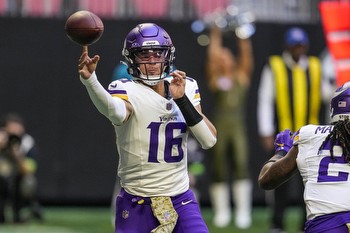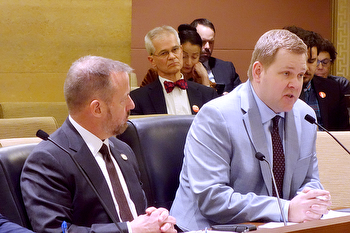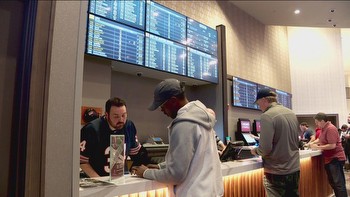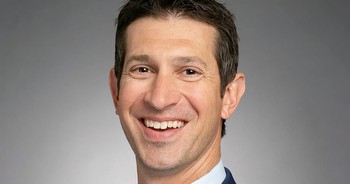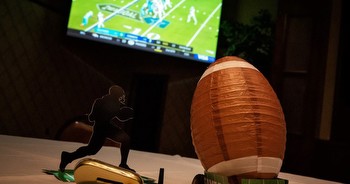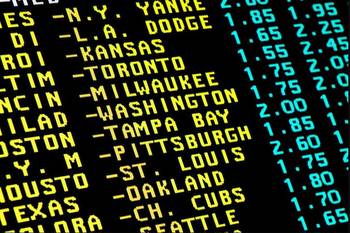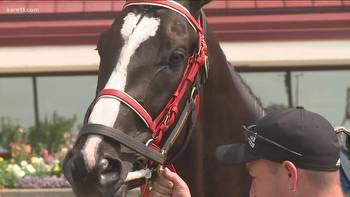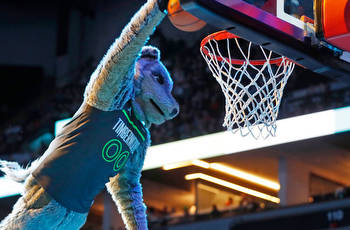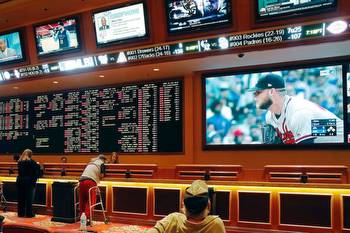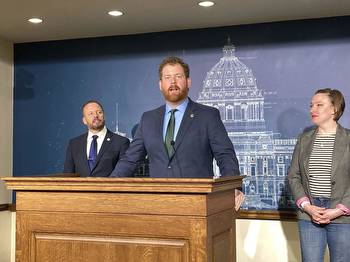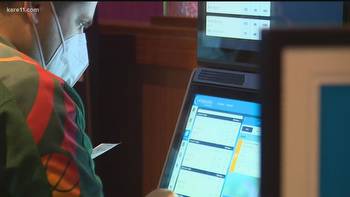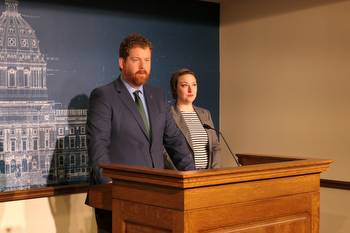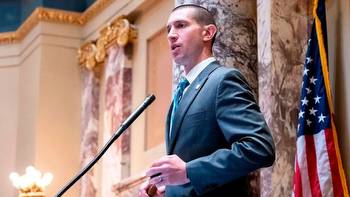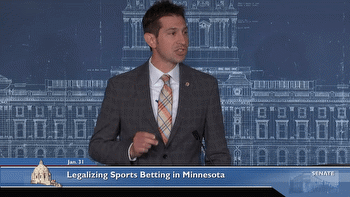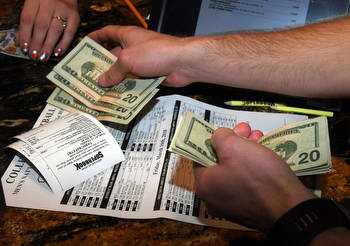Hopes for legalized sports betting in Minnesota appear dashed again over tribes-tracks conflict
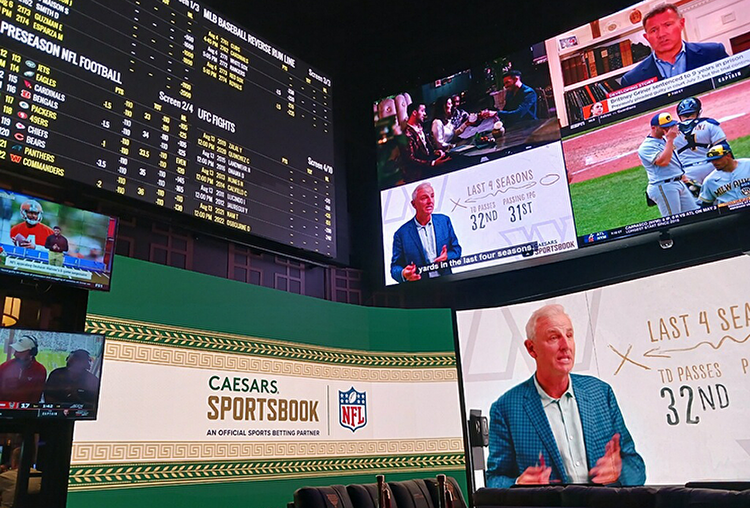
The bad prognosis for a Minnesota sports betting bill this year isn’t about odds, it’s about math.
DFL sponsors of the bill to allow the state’s casino-owning tribes to offer both in-person and mobile betting don’t have enough votes to pass it on their own. But attempts to gain the few GOP yes votes to replace their own DFL no votes haven’t worked yet.
The acti0n is in the Senate for now where the prime sponsor, Sen. Matt Klein, is trying to salvage the bill in the 34-33 body. At least two DFL senators have said they will not support any expansion of gambling.
“I am absolutely an N-O vote,” said Sen. Scott Dibble of Minneapolis. Sen. John Marty of Roseville has also been opposed to expanding gambling. Both cite social justice concerns because they fear the ill-effects of more and easier betting will fall heavily on low-income residents and in communities of color.
To collect Republican votes, the bill must help the state’s two horse racing tracks — the harness racing facility in Columbus called Running Aces and the thoroughbred track in Shakopee called Canterbury Park. The owners of both think they should be allowed the same gambling expansion that the tribes would get under Senate Bill 1949.
That’s not likely to happen.
Klein pledged again last week that “tribal exclusivity will not be violated.” Doing so would cost him far more DFL votes than two because support for the tribes is a centerpiece of the DFL agenda. Even if the Legislature decided to allow the tracks to offer betting on other sports via mobile devices, Gov. Tim Walz has said he would not sign such legislation.
So how does a sports betting bill provide some help to the tracks without giving them any of the action? Klein — and in the House Rep. Brad Tabke, DFL-Shakopee — have been looking at other ways to get more money to the tracks. Additional revenue could be used to increase prizes, which fuel the horse breeding business in the state. More money could also help jockeys and backstretch workers and support for equine research.
The nine tribal members of the Minnesota Indian Gaming Association (MIGA) have said they will support sports betting only if they maintain exclusivity over any new forms of gambling. But they said they were OK with the state taking some of its revenue from mobile betting off reservation and giving it to horse racing.
Andy Plato, the executive director of MIGA, said gambling has provided the revenue that funds tribal programs and has created economic opportunities that have lifted many members out of poverty. Tribal governments have been cautious about sports betting since a 2018 U.S. Supreme Court ruling overturned Congressional restrictions on state sports betting.
Lessons from other states convinced the tribes that they could support a bill that gave them the exclusive authority over sports betting. MIGA supports the two bills in the House and Senate.
“Anytime the state changes the gaming landscape, tribes must carefully consider whether such proposals strengthen, or in fact threaten, tribal sovereignty and self-determination,” Plato said.
Currently, half of the state’s share of revenue collected on off-reservation mobile bets would go for problem gambling treatment and awareness. The amendments Klein offered and that the Senate State Government Committee adopted takes 30% of state revenues for a new horse racing economic development fund that will be run by the state racing commission.
Tracie Wilson, chief financial officer at Running Aces, said she appreciated that the amendments are the first that mention horse racing or the two tracks. But she said the money offered isn’t enough. She said sports betting at tribal casinos and on mobile devices will further reduce the tracks’ take from racing and the available table games.
The Klein provision provides up to $20 million in the short term but then caps the distribution to the two tracks at $3 million a year.
“The financial compensation from the current legislation is too limited to be effective,” Wilson said, while offering to keep talking to sponsors. Wilson said having additional types of gambling at both tribal and non-tribal casinos — specifically craps and roulette — would help. But that expansion is opposed by the tribes.
Randy Sampson, CEO and chairman of Canterbury Park, said the Klein amendment “would provide a meaningful level of support for the horse industry for a few years, it creates a funding cliff by placing a future cap of $3 million per year.
“That would not be adequate to produce the level of support to keep horse racing viable in the face of the expansion of gambling that mobile sports betting would produce,” Sampson said.
All of the players are still talking, primarily what are dubbed the three T’s — the tracks, the tribes and the teams, with teams referring to the professional and college sports teams that can benefit from sports betting by marketing deals and other means.
But only two weeks remain in a legislative session that leaders have pledged will not go into a special session and might end early. Klein tried to be positive, arguing that it is the elected lawmakers, not the interest groups, who decide. The Legislature has shown it can act quickly if there is a will, he said.
Klein, from Mendota Heights, said he might bring a bill to the floor and make senators go on the record over an issue that polls show has significant support among Minnesotans.
“At the end of the day, the people who decide this issue are not the tracks, the tribes or the teams,” Klein said. “It’s Minnesota state legislators who get to vote the way that they choose to vote. And so it’ll be up to them.” The deal on the table is the best — in fact only — deal offered the tracks, he said.
“We’re offering them what I think is gonna be their best offer this year. And the question on the table will be, would you rather have this or have nothing?”
Rep. Zack Stephenson, DFL-Coon Rapids, is the prime sponsor of the bill in the House. He was less optimistic than Klein that there was enough time to finish a bill that has no agreement and not enough votes.
“I obviously would love to see it happen if we’re able to get there, but there’s a lot of other stuff going on. We are running out of time,” he said. “It’s a tall order.”
“We have to get cannabis done. We have to get paid family leave done. We’ve got to get a budget done. There’s a lot to do right now, and sports betting is something I’d like to see happen but those other issues are a higher priority.”
Aide for the tracks is not in his bill but he is open to it.
“There is some desire to make sure the horse racing industry in Minnesota is stable and successful,” he said. “It’s important to a lot of members. I’m not necessarily including myself in that. But it’s important to a lot of members that horse racing is stable and successful.”

